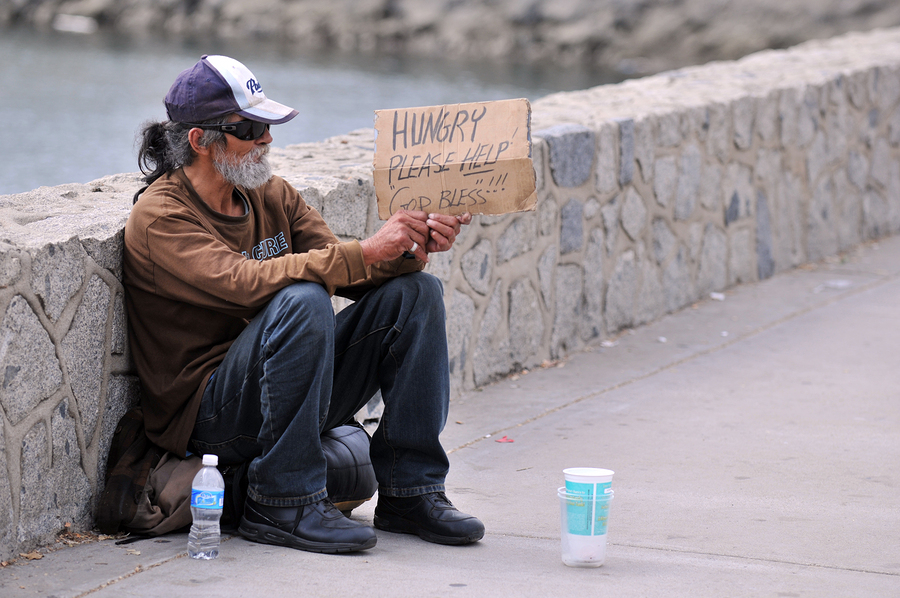Helping or Hurting? Best Ways to Serve the Poor
“Homeless. Hungry. Please help.”

You’ve probably seen the message hundreds of times.
Usually, it’s scrawled onto an old piece of brown cardboard with a magic marker. Behind the cardboard is the face of a fellow human being, and you want to help. But what’s the best way to do so?
I used to put very little thought into how to help. I just wanted to do something. So, like many well-meaning individuals, I’d do the easiest thing and hand over a little bit of pocket change. It felt good, and usually resulted in a thank you and a smile.
Then I saw a campaign by several homeless shelters and nonprofits in Charlotte, N.C. that really made me think. Their slogan was, “Real change doesn’t come from your pocket.”<---more!>
They plastered that message on billboards and bus stations all over town while handing out fliers with maps to the local shelters. They asked visitors and residents not to give money directly to homeless people, but to support the shelters and organizations working strategically to help them.
I don’t think the people running the shelters were being mean or coldhearted. I think they were trying to help residents realize that while it may feel great to give people exactly what they’re asking for (usually money), it can actually be part of the problem.
By handing over cash, I was potentially becoming an enabler.
I’m not saying all homeless people will spend the money on booze. I’m not saying all homeless people will habitually beg for cash instead of taking steps toward steady employment or a permanent home. I am saying it’s very difficult to know how my money will be used once I hand it over to an individual.
If you’re like me, and you want to be part of the solution and not part of the problem, here are a few alternatives to consider.
Give to a shelter or other organization that helps the homeless.
Whether you donate money, food or clothing, you’ll be part of a bigger, more long-term solution by supporting the groups that support the homeless.
Donate your time.
 This act of generosity is twofold. By volunteering in a soup kitchen, a shelter or a place that offers activities for homeless or poverty-stricken children, you’re not only being part of the solution, you’re allowing your heart to be softened as you meet people face to face.
This act of generosity is twofold. By volunteering in a soup kitchen, a shelter or a place that offers activities for homeless or poverty-stricken children, you’re not only being part of the solution, you’re allowing your heart to be softened as you meet people face to face.
It’s easy to stereotype homeless people or put them in a certain light. It’s much more difficult to do that when you’re looking them in the eyes.
Encourage your church to get involved.
Good churches want to be a light in the communities they serve. Find out exactly where your money goes when you tithe to your local church.
Oftentimes, a portion of donations goes toward organizations or projects that help the homeless. My church, for example, partners with several groups including Habitat for Humanity, a nearby shelter and a food pantry. We have also developed a partnership with a local nonprofit that only works with homeless children. That means every time we give to the church, we’re doing our small part to help the homeless, without even thinking about it.
Hand out some practical stuff.
Even though our regular church giving supports the homeless population in our community, there are times when I still want to do more.
I find myself pondering how Jesus would respond to someone directly asking Him for help. Sometimes handing out a flier with a shelter map just doesn’t seem to cut it. For those situations, my husband and I have created some ready-made gift bags. They’re just plastic freezer bags filled with practical things like granola bars, water bottles and personal hygiene items. Sometimes we’ll write down some scripture verses or an encouraging note and tuck it inside the bag.
For those who want to do something on the spot without handing over cash, this is a great alternative.
